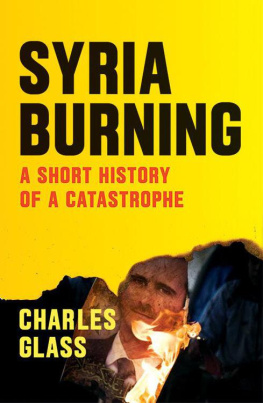The Syria Dilemma
The Syria Dilemma
Edited by Nader Hashemi and Danny Postel
A Boston Review Book
THE MIT PRESS Cambridge, Mass. London, England
2013 Massachusetts Institute of Technology
All rights reserved. No part of this book may be reproduced in any form by any electronic or mechanical means (including photocopying, recording, or information storage and retrieval) without permission in writing from the publisher.
Library of Congress Cataloging-in-Publication Data
The Syria dilemma / edited by Nader Hashemi and Danny Postel.
p. cm. (Boston review books)
Includes bibliographical references and index.
ISBN 978-0-262-02683-3 (hardcover : alk. paper)
ISBN 978-0-262-31732-0 (retail e-book)
1. SyriaHistoryProtests, 20112. Peace-buildingInternational cooperation. I. Hashemi, Nader, 1966 II. Postel, Danny.
DS98.6.S94 2013
956.91042dc23
2013024506
10 9 8 7 6 5 4 3 2 1
To the Syrian people
Introduction
Why Syria Matters
Nader Hashemi and Danny Postel
The killing fields of Syria are rapidly approaching those of Bosnia. According to the Office of the U.N. High Commissioner for Human Rights, 92,901 unique killings have occurred between March 2011 and April 2013, including 6,561 children.
This rising tide of death has also been copiously documented by Amnesty International, Human Rights Watch, and the U.N. Independent International Commission on Inquiry on Syria. All have charged the Assad regime with a policy of state-sanctioned war crimes and crimes against humanity and the U.N. High Commissioner for Human Rights, Navi Pillay, has repeatedly called on the U.N. Security Council to refer Syria to the International Criminal Court (ICC). We will be judged against the tragedy that has unfolded before our eyes, Pillay has stated.
The nightmare in Syria has been front and center in the worlds consciousness for over two years, but there is no consensus about what canor shouldbe done to stop it. The U.N., the U.S., the European Union and the countries of the Middle East are flummoxed on how to end the conflict. Kofi Annan quit as U.N.-Arab League joint special envoy to Syria in frustration that his efforts came to naught. His successor, Lakhdar Brahimi, has been similarly exasperated, repeatedly threatening to step down. The Syrian conundrum evokes former U.S. Secretary of State Warren Christophers description of the Bosnia war as a problem from hell, a phrase etched in our moral and political lexicon by Samantha Powers Pulitzer-prize winning 2002 book.) that if bold action wasnt taken quickly, Syria would become yet another problem from hell. The situation has only deteriorated since. The body count rises daily, with no end in sight. And the debate about what to do rages on.
Syrias Complexity
While the conflict in Syria has its origins in domestic politicsrooted in the corruption, nepotism, cronyism and repression of 42 years of Assad family ruleits regional and international dimensions are manifold. In this sense Syria is qualitatively different from and more complicated than the other Arab Spring rebellions, considering the multiplicity of actors who have a stake in the outcome of the conflict.
Syria has morphed into a key battleground between Saudi Arabia and Iran for regional hegemony. Religious sectarianism, primarily promulgated by the Saudis and their allies, has risen to new heights and destabilized Lebanon and other neighboring countries in the process. Israel has entered the conflict to settle scores with Hezbollah and to indirectly send a message to Tehran. Turkey is deeply involved in Syria for its own reasons, and currently provides a home and safe haven for the Syrian opposition. Qatars fingerprints are all over the conflict.
Geopolitically, the Syrian conflict has led to new rivalries between the U.S., the U.K. and France on one side, and Russia and China on the other. The U.N. Security Council has been paralyzed as a result, with the non-permanent members dividing their support between these two camps. The first concrete sign of global cooperation to end the conflict emerged in May 2013, when it was announced that the US and Russia would jointly sponsor an international conference on Syria, based on the June 2012 final communiqu of the U.N.backed Action Group for Syria meeting in Geneva.
The issue of Syria has been further complicated by the rise of radical Salafi-jihadi movements. While their numbers remain small, by all accounts their influence is growing. This is partly due to funding from Islamic charities in the Persian Gulf, as Thomas Pierret explains in his illuminating contribution to this book. But arguably the absence of significant support from the international community for the oppositions more democratic elements is equally critical. Whatever its causes, the growing Salafization of Syrias opposition has made the conflict even more intractable, a problem that will only deepen the longer the violence persists.
Debating InterventionSyria in the Shadow of Bosnia and Iraq
The debate over Syria is in many ways a flashback to the debates during the 1990s Balkan wars, not only because of the ethnic and religious divisions at work in the two conflicts but because of the arguments about intervention then and now.
The 1990s were the heyday of the humanitarian intervention paradigm. Somalia. Haiti. Bosnia. Kosovo. East Timor. The Responsibility to Protect (R2P). The case for international military forces stepping in to stop or prevent mass atrocities and crimes against humanity was all the rage in intellectual and policy circles. A cascade of books and articles elucidated the theoretical and practical dimensions of humanitarian intervention. It was the concept of the day.
Then came Iraq. The catastrophe of the Iraq war seemed to have consigned the humanitarian intervention paradigm to the proverbial dustbin of history, and to have discredited its proponents, some (though by no means all) of whom signed on to that ill-fated invasion in the name of human rights.
Syria has brought us back in many ways to the 1990s and the humanitarian intervention debate, as Libya had done on a smaller scale the year before. The mass killing has motivated many who advocated intervention to stop the bloodshed in the Balkans to do the same in Syria. In his essay for this volume, Michael Ignatieff, one of the leading proponents of humanitarian intervention in the 1990s, draws explicit connections between Bosnia and Syria.
But the shadow of Iraq very much looms over the Syria debate. Both the Iraq and Afghanistan wars have created deep and wide skepticism about military intervention, particularly led by the U.S. Iraq is a reference point for many opponents of intervention in Syria. In his contribution to this book, Fareed Zakaria invokes Iraq as a cautionary tale for why intervening in Syria would be futile and ill-conceived.
This view is widely shared in Washington policy circles. In my meetings with American policy makers I often detect a conversation between ghosts, a senior Israeli diplomat has noted. The ghosts of Afghanistan and Iraq are vying with the ghosts of Rwanda and Kosovo.
Yet both Bosnia and Iraq can be argued the other way around in relation to Syria. In his essay in this volume, Shadi Hamid, in juxtaposition to Zakaria, contends that Syria Is Not Iraq and that the legacy of that war has confused the debate about what do to in Syria. And in juxtaposition to Ignatieff, Ambassador Christopher Hill draws on the process that ended the Bosnian conflict (one in which he played a critical role) to make the case for a diplomatic solution to the Syrian crisis.
Further complicating the picture, the Syria debate goes beyond conventional left/right categories. Many oppose intervening in Syria on conservative grounds. Realists and libertarians are among the most outspoken opponents of intervening in Syria. Liberal opinion is internally dividedas is the Obama administration itself. Some liberals, like Anne-Marie Slaughter and Michael Ignatieff, favor intervention, while others, like Joe Klein and Marc Lynch, another contributor to this volume, oppose it.
Next page
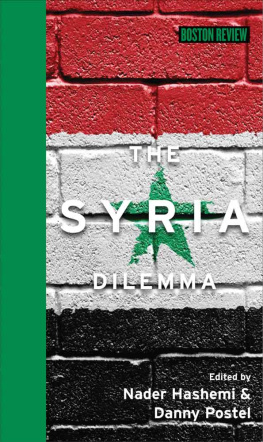

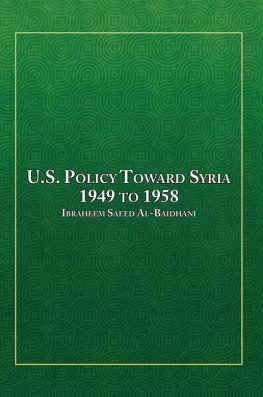
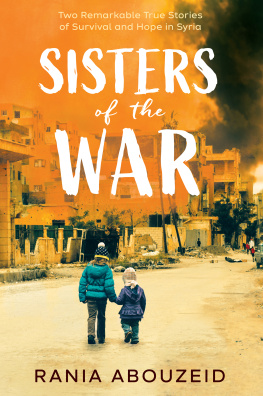
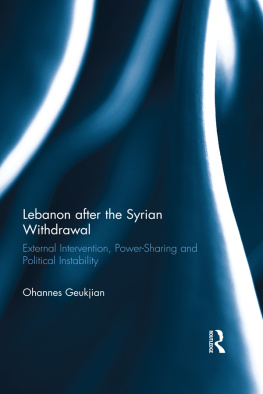
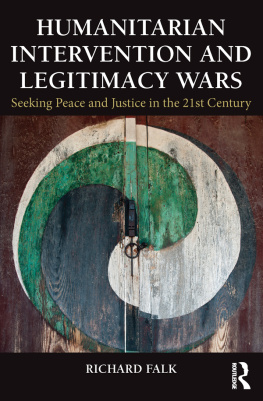
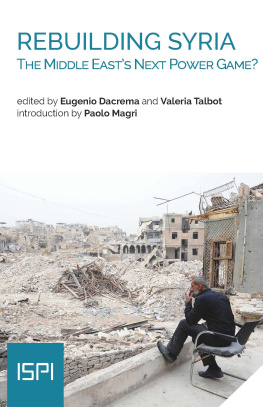
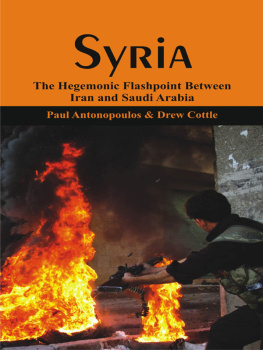

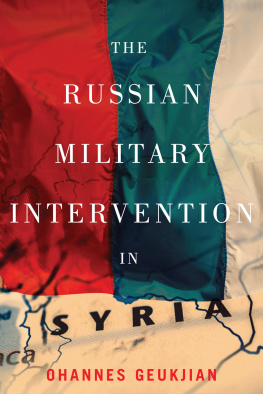
![Cockburn Patrick - Syria Burning: A Short History of a Catastrophe: [VersoUSAed]](/uploads/posts/book/207719/thumbs/cockburn-patrick-syria-burning-a-short-history.jpg)
